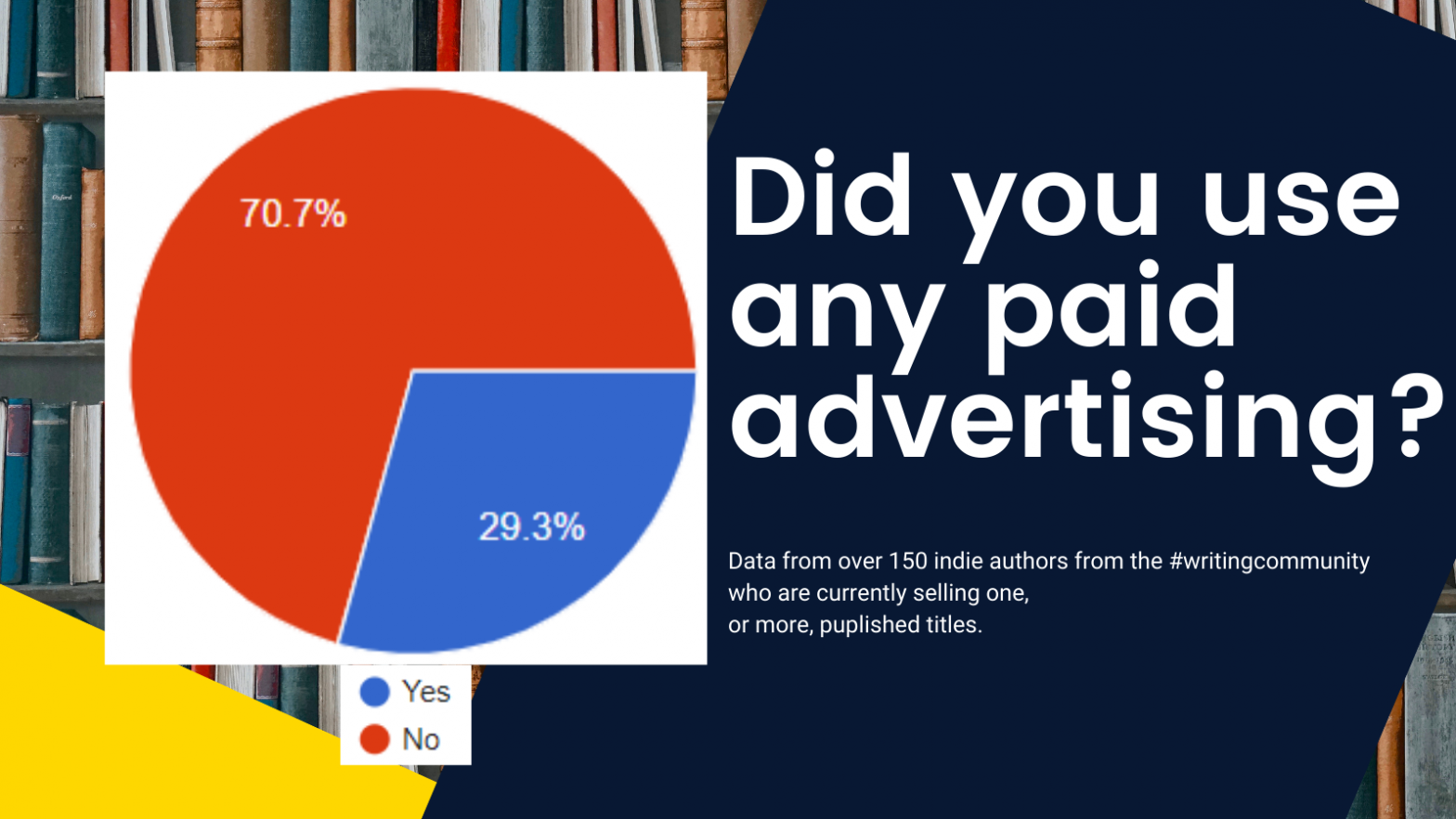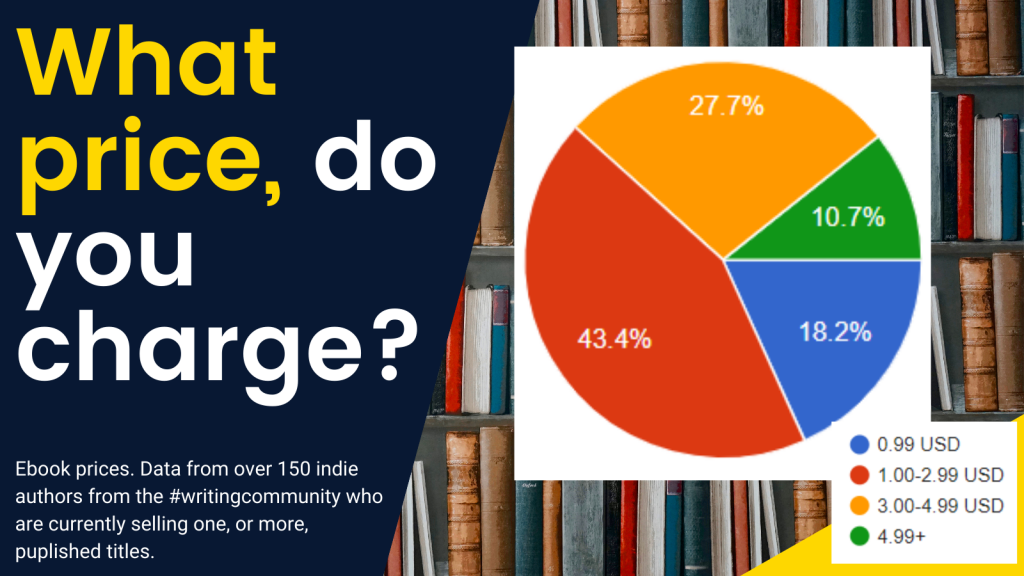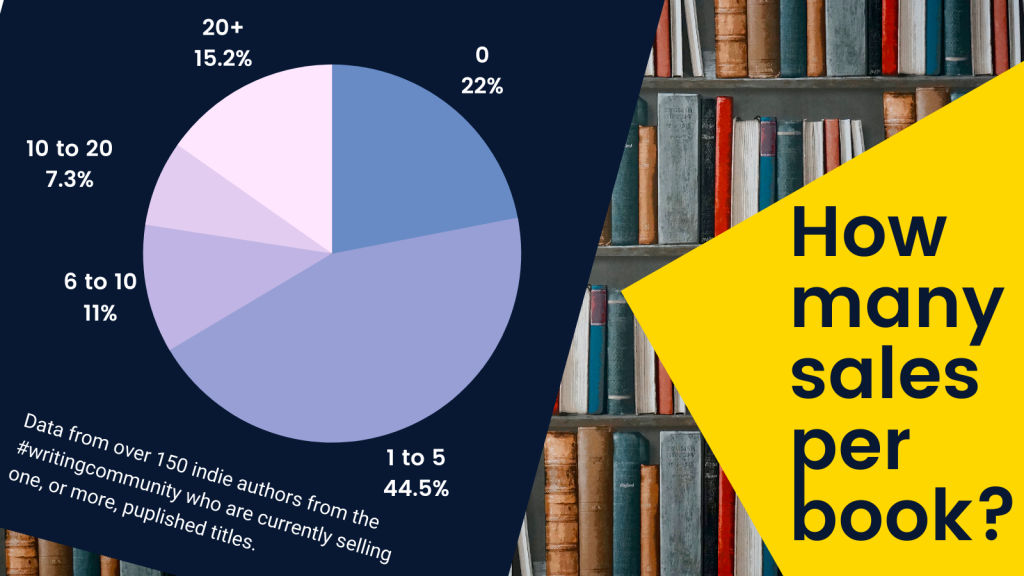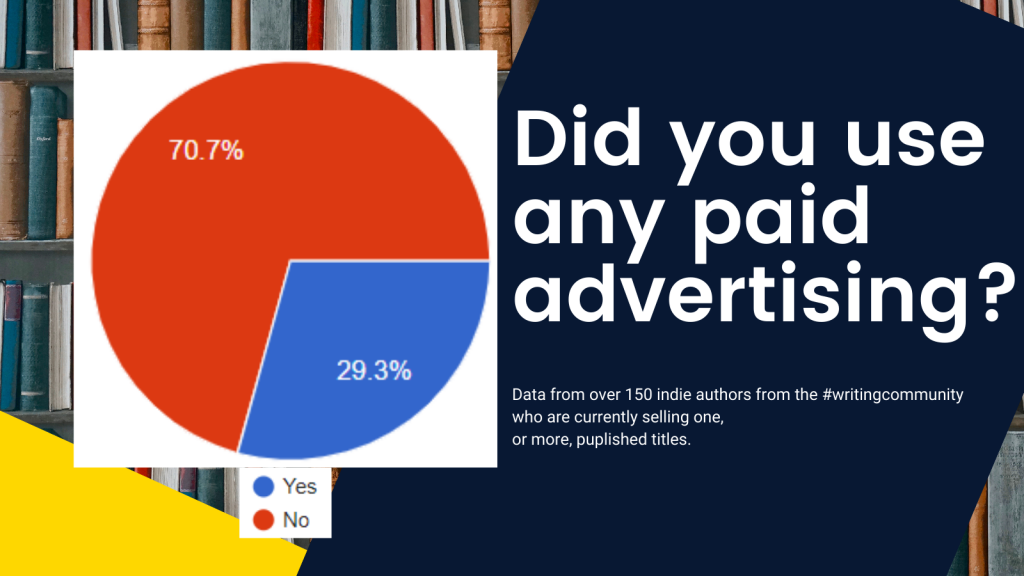This week we’ll be looking at advertising. First, an apology, I will try to get these posts out more frequently, weekly was the aim!
So. We’ve got a lot to look at here. First, how many indie authors used PAID marketing of some form during indie april… and of course, did it make a difference. A little caveat here, it’s impossible, with the data we have to remove all of the factors that might also have an impact on this.
Last time we looked at sales, and numbers of titles authors had. This data is from the same survey so these things can have an impact. We’ll look at things in the simplest form.
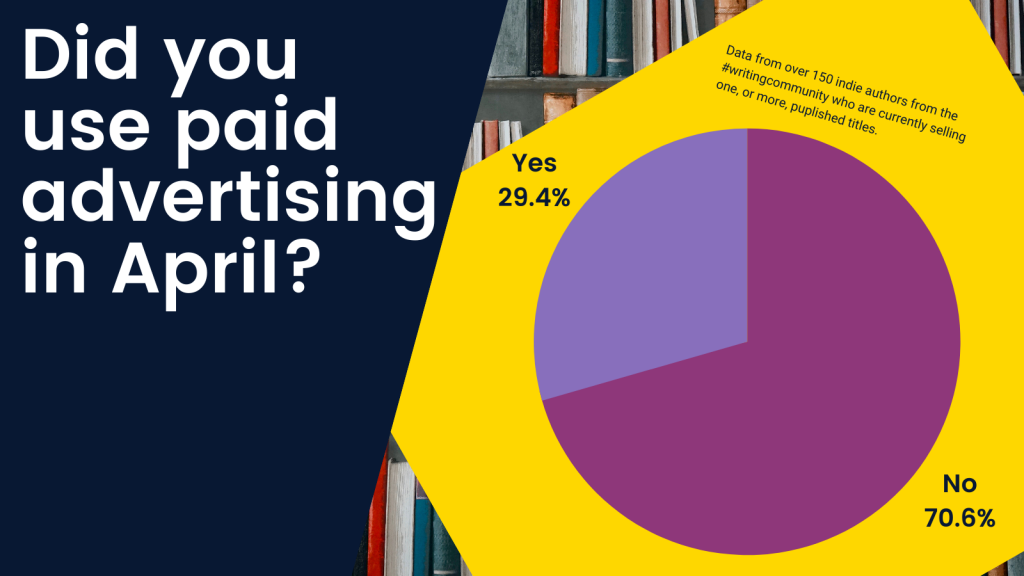
So just less than a third of respondents used paid advertising. I’ll go into a bit more detail about which methods of paid advertising used later. Right now I’m trying to answer the question of ‘pay to play’, or the old ‘speculate to accumulate’.
First, a quite incredible statistic which I will qualify. Authors who did advertise (and this is after removing ‘IncrediAuthors’ – those authors who sold over 500 books and formed about 1% of survey results)
| Advertising | Average Sales per author | |
| Yes | 48 | |
| No | 23 |
Let’s do that again but by titles – It’s important to note here that I have no way of knowing which titles were advertised by each individual author. So an author might have 10 books, but only advertise 1.
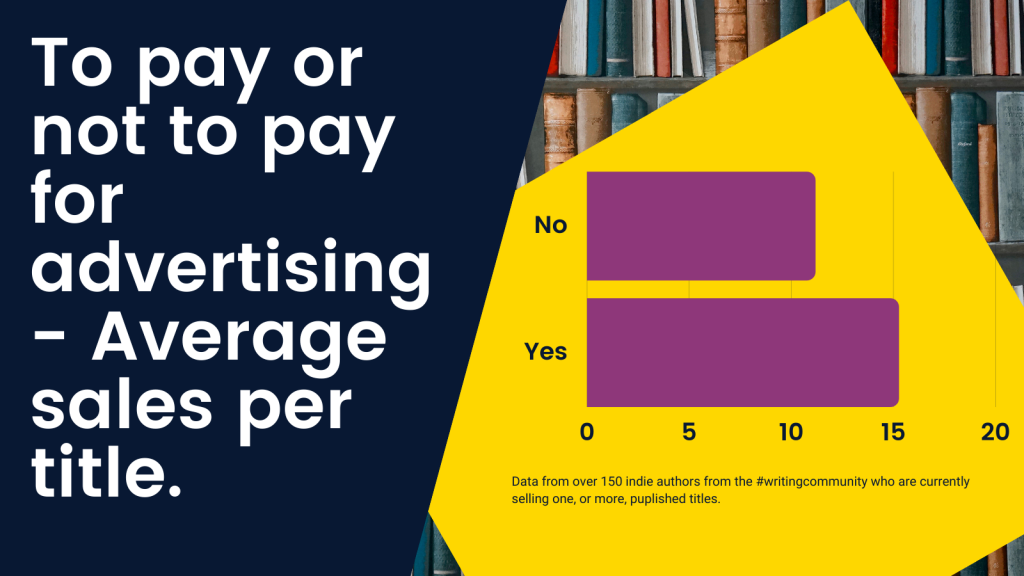
So, on average, those authors who paid for advertising saw a 26% increase in sales per title, than those who didn’t use paid advertising.
There’s a pretty clear picture here, paid advertising leads to more sales.
What type of advertising was used? There are a huge number of potential advertising spaces and ways to reach potential readers but in order to get some kind of answer here I had to narrow things down – so…
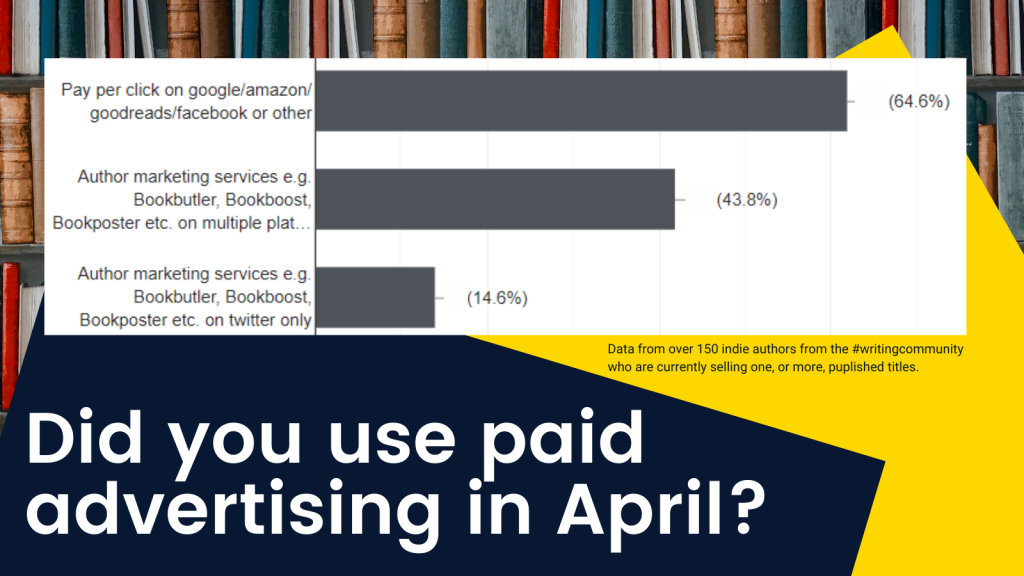
As you can see the most popular method of advertising – 64% of those authors who used paid advertising used PPC (pay-per-click) methods. My feeling here is that the majority of that is via Amazon marketing – but I can’t back up that statement.
The least popular was twitter specific marketing – Some of you might be reading this thinking that’s an odd segment but most of the respondents to this survey are part of the #writingcommunity on twitter – If you’re not accessing this valuable resource of wonderful writers I’d suggest you get on it. Drop a tweet saying you’re new, and meet the community.
There is crossover here. So some people may have used all of them. You’re probably wondering which one of these is the most effective. Let’s see if we can ‘kind of’ find out…
First though a quick call to Captain Caveat, master of the disclaimer and warrior for ‘don’t blame me-ism’. The numbers for this section are quite small, so it’s relatively anecdotal evidence.
I asked authors – How many of your sales do you feel come from paid marketing. The options were percentages.
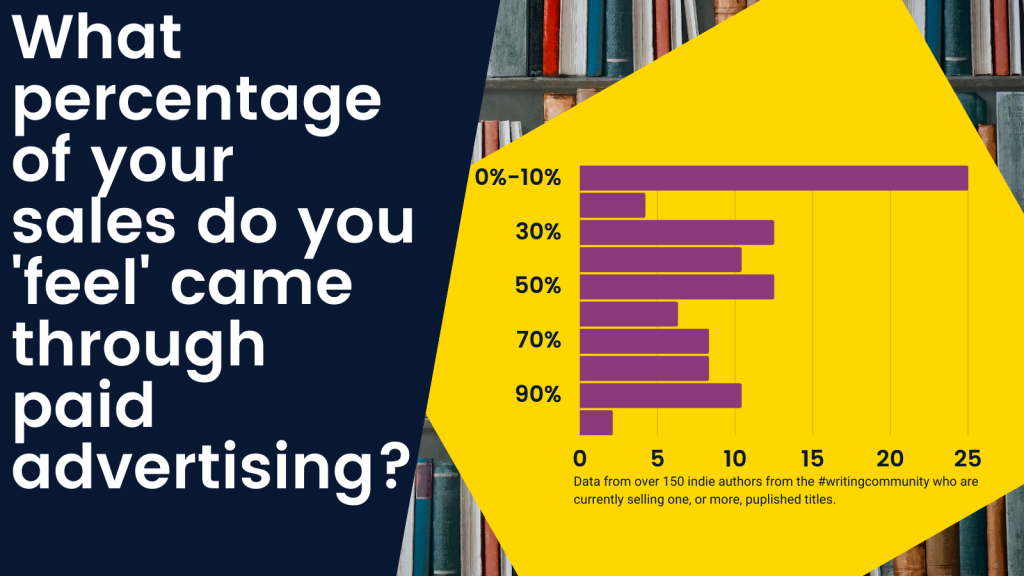
It was a really interesting break down and basically… it doesn’t tell us much but some people were not impressed with the method they used.
I am not an expert – if I was I would be selling lots more books, I’d probably have written more as well (I’ve written 2, go buy them – I don’t mind if it’s just out of pity… really, I don’t). I will say this – even this survey shows that paying for advertising sells you more books BUT you need to do it right. Throwing money at it is only a solution if you don’t care about breaking even. Do it right though, and it can work for you.
I also asked – Would you recommend the marketing options you used?

Sorry, that’s not very helpful. The problem was that there was no specific type of advertising that was recommended, or not recommended, it was quite an even spread. So I can’t be specific, but I’ll say this from my own experience. Amazon ads kind of worked but it’s a steep learning curve, an email blast from a well recommended promoter worked well, and a promoter on twitter didn’t work well – but that’s just me and different services are different and all of these things depend on author copy – so if my pitch was good, or rubbish, will matter!
I asked, how much did you spend on advertising –

So did spending more get you more sales… (Calling Captain Caveat again – If you’re selling multiple books you’re probably not advertising all of them so this data is probably nonsense).
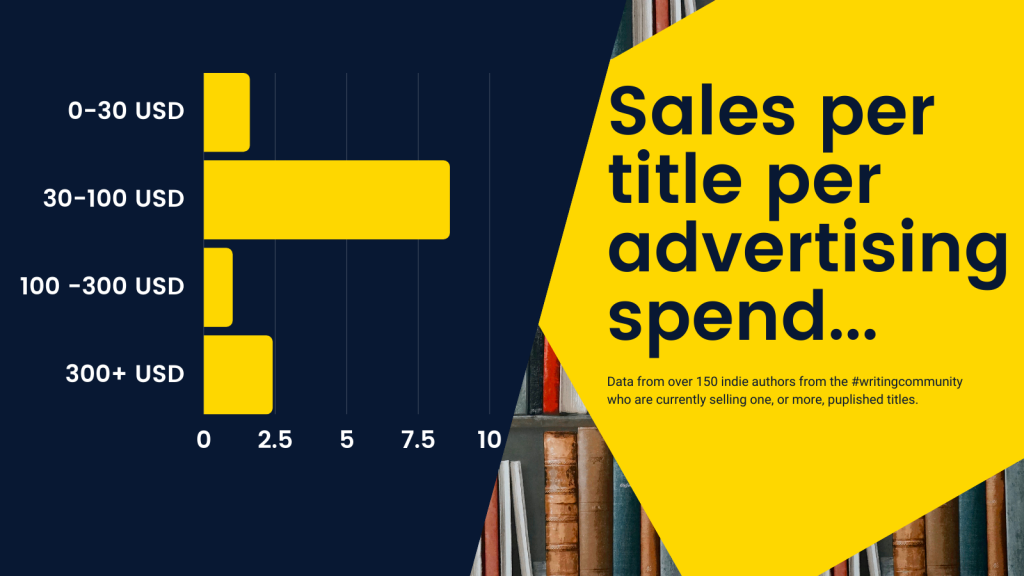
Let’s look at this slightly differently – just a flat, spend against how many books sold…
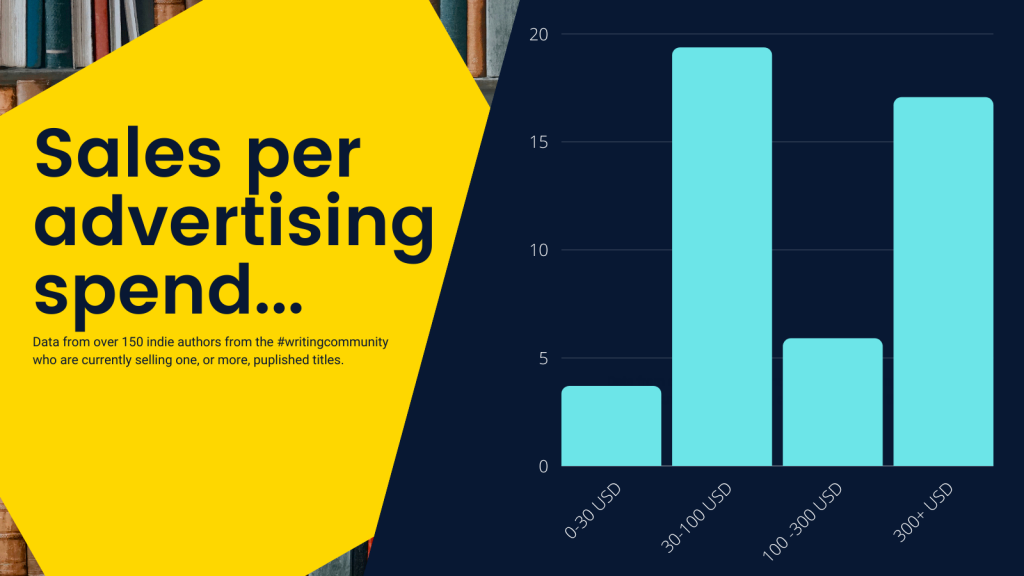
I’m going to be honest with you here and say this – I do not believe this data tells us very much at all – it’s a very small pool of authors who used paid advertising. We’ll call in Captain Caveat one more time though.
It does appear that paid advertising sells you more books. I would be surprised if many of you thought otherwise, but this survey didn’t reveal the secrets we wanted. What we did learn is this.
Authors who used paid advertising sold more books than authors who didn’t
The amount paid doesn’t necessarily have a correlation to the amount sold – by this I mean, paying increases sales, but how much you pay may not be the crucial part.
I am not knowledgeable enough to give advice on advertising BUT if someone said to me, “Oi, thicko, if you’re going to be paying for advertising maybe look into it and make sure you’re doing it right.” I would feel unnecessarily attacked, but would have to concede the point.

